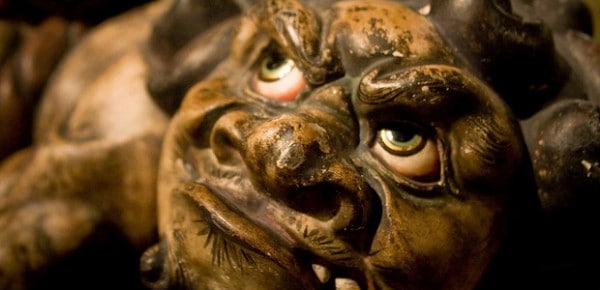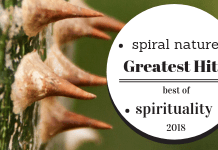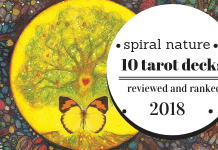 Earlier in the month we published our giant list of the 25 best occultnik books from 2015, reviewed and ranked, and our list of the 11 best tarot and oracle decks from 2015, and now we’ll share the list of our 9 most popular magick articles from 2015.
Earlier in the month we published our giant list of the 25 best occultnik books from 2015, reviewed and ranked, and our list of the 11 best tarot and oracle decks from 2015, and now we’ll share the list of our 9 most popular magick articles from 2015.
Click on the title link to take you to the full article to revisit articles you’ve forgotten, meant to read, or maybe haven’t seen yet if you’re newer to the site. (Welcome!)
We’ve had a fantastic year, and it’s all thanks to you — our supporters and readers.
Happy holidays!

9. Practical alchemy: A beginner’s report
By Seth
I first heard about the Paracelsus College through Christopher Hyatt‘s book,Undoing Yourself with Energized Meditation and Other Devices. In one of the appendices, a former student at the Paracelsus College talks about his experience with physical or practical alchemy.1 Prior to that, I had read a little bit about spiritual takes on alchemical symbolism, but I had no idea that there was anyone still doing it as a physical laboratory exercise. I was taken with the idea; I wanted to see what it was about and see what strange things I might be able to accomplish with it. After all, the author of that article claimed to have spent a lot of time on the “water work,” creating life. This and other accounts talked about extracting substances from metals that should not exist, and also of the creation of various “stones” with very strange properties.
Click to read the full article.

8. Chinese fortune telling, tarot, and divination
By Benebell Wen
On page one of my book Holistic Tarot, I wrote, “I do not support fortune telling.” When I sat down to write my book, I made the conscious decision to state my position on that particular issue. I wanted to pull professionaltarot practice outside the scope of anti-fortune telling laws that are still enforceable in many parts of the United States. More than that, my position comes from a definition of what fortune telling entails that might differ from Western perspectives, a personal definition influenced by the Chinese theory on fortune telling. I hope this article will provide context for my position.
Click to read the full article.

7. 8 swords and no hands
By Xenia
The 8 of Swords and I have a long history. It’s shown up in so many of my readings that for a long time I was surprised if it wasn’t there. But lately, as my life has changed (thankfully for the better!) I haven’t seen it as much, and in a way I’ve come to miss it, even though it always signified struggle and hardship for me. I’ve developed a close relationship with the 8 of Swords, and my own web of interpretations and associations, and now that the card stepping out of my life I feel compelled to share them.
Click to read the full article.

6. Four Thieves: From medicine to magick
By Anie Savino
The legend of the Four Thieves blend is shrouded in history and myth. Four Thieves vinegar is an herb-infused vinegar used for preventing and treating infection, with garlic usually as the main ingredient, as well as cloves and lavender. Since the 1940s it has been common to find a blend of essential oils listed as Four Thieves, often credited to aromatherapist Jean Valnet of France.1
In the Americas, Four Thieves vinegar is common in southern hoodoo magick, and can be purchased from a variety of magical suppliers; alternatively, you can make it from vinegar and herbs in your own home. The vinegar can be used for one’s health, and in the kitchen is used as a cooking vinegar or as an antiseptic surface cleaner. Topically, both vinegar and oil can also be used magically as a barrier to unwanted energies, a thief-deterrent, and even as fortification against psychic attacks.
Click to read the full article.

7. Pop culture magick: An introduction
By Emily Carlin
As with just about any form of magick, you’ll get different definitions of pop culture magick depending on who you ask. In essence, PCM is any form of magick that uses an element of pop culture (books, movies, TV shows, comics, music, etc.) as part of its mechanism. How pop culture is used and to what extent varies tremendously. It might mean calling on the energy of Hermione Granger to help study for an exam, doing a guided meditation to speak to Galadriel about working with the energies of nature, performing a protection spell for your computer calling on Nicola Tesla, or crafting a whole system of magick based on a particular world or fandom, etc. PCM may or may not include elements of Pop Culture Paganism (the use of pop culture characters and stories as either an approachable face for traditional Pagan deities and powers, or as a substitute for more traditional powers and mythologies) or other religious traditions.
Click to read the full article.

6. The power of the Sphinx, Part II: To will
This is the second in a series of four articles considering its possible meaning and implications. The previous article dealt with the instruction “to know,” and concluded that this paradoxically suggests the need for doubt. The mantra suggests the question, Without knowledge, where is an occultist to find meaning? The sphinx was famed for its riddles and, as with any good riddle, the answer is to be found in the question. It is therefore time to consider the implications of the next instruction “to will.”
Click to read the full article. You might want to start with “The power of the Sphinx, Part I: To know.”

5. Bust inner ghosts with tarot
By Tabitha Dial
My biggest ghost at the moment is creating a new business web site, with resources aplenty. I want others to know my interests and feel inspired to create. This desire to expand and rebrand is in line with seeingtarot court cards as creative archetypes, writing tarot poetry, and crafting a tarot wreath.1
Click to read the full article.

4. Why you should keep a magical journal
Journals are one of the most useful tools in a magician’s temple. Writing down events, ideas and progressive achievement can prove to better ones skill in any category. While memory is powerful, it would be foolish to assume that we remember everything all the time. Our journals can serve to remind us of our goals and aspirations while simultaneously serving to bring them to life.
Click to read the full article.

3. Kabbalistic Visualization
There’s nothing like first-hand evidence to start to explain the powers of the sacred 72 names of God on one’s life. I was first introduced to this system of 72 letter combinations about 15 years ago during akabbalah course, but did not realize their mighty power until I started working with them several years ago. These are truly life-transforming agents, a divine gift to humankind.
Click to read the full article.
 2. Working with demons
2. Working with demons
The spirit world has made itself known to me since I was a child. When a spirit entered a room, I felt the energy change and I always sensed that I was being watched. It was not something that I could voice to the people around me, but as I started to feel drawn to things of an occult nature, I learned that there were unseen beings that wanted my attention. It was not long before I knew that it was Satan who was calling me.
Click to read the full article.

1. Alternative approaches to the Goetia
According to the Goetia, in order to get a demon to appear and do as they’re told, a circle is drawn on the ground inside a triangle to contain them. The letters of the archangel Michael are divided into three parts and written in each corner, as it is believed to keep the demon from leaving.The demon is commanded into the circle by the practitioner, and they must appear visibly in the shape of a human, and speak in a clear manner. If they don’t listen, the practitioner commands them in the name of the Abrahamic god, Jesus, and the angels.
Click to read the full article.
What were your favourites from 2015? What would you like to see us cover in 2016?








